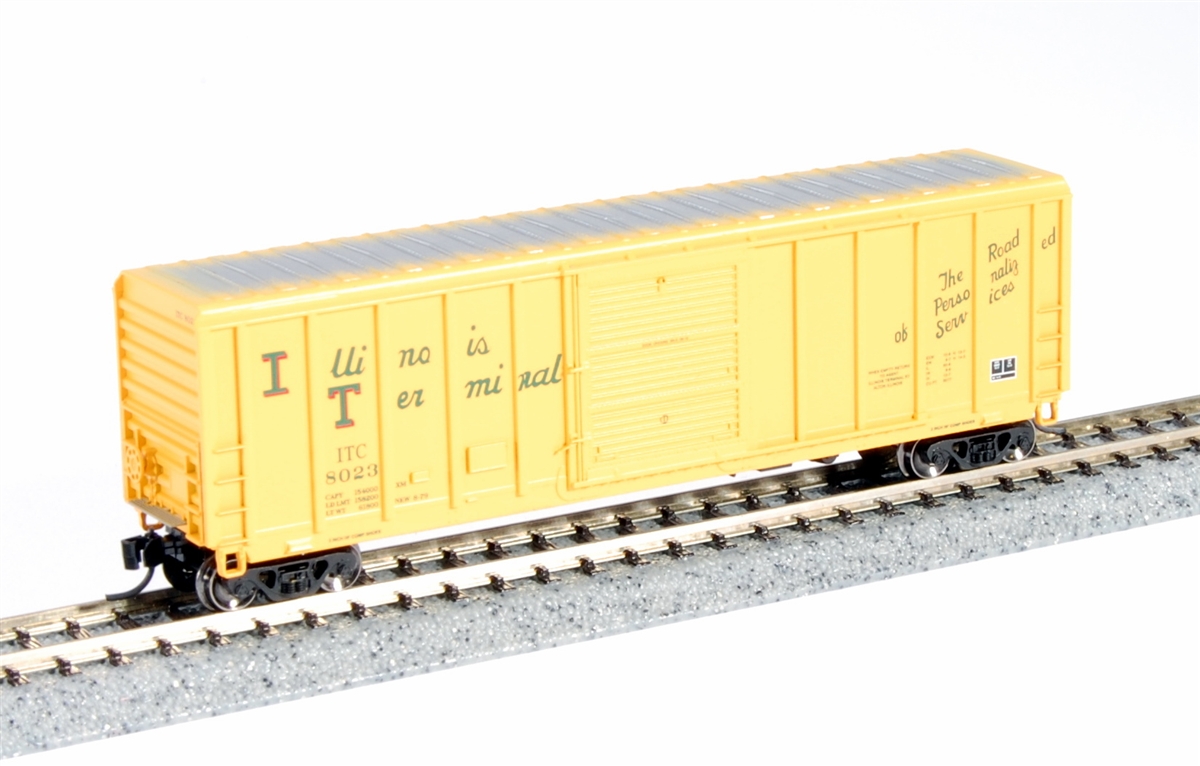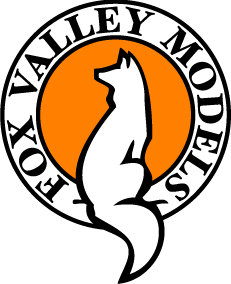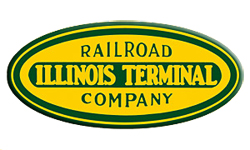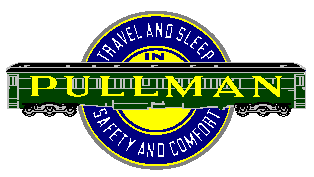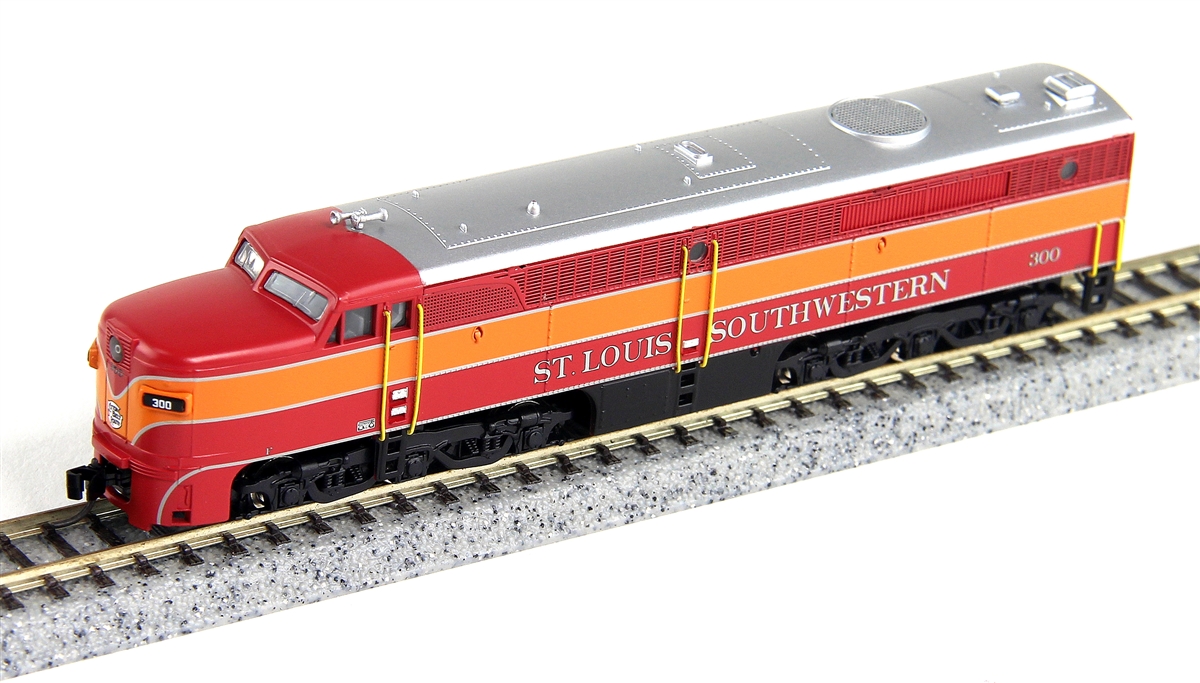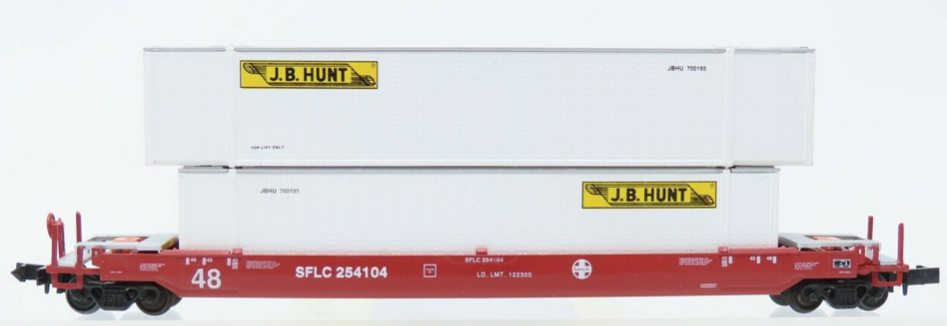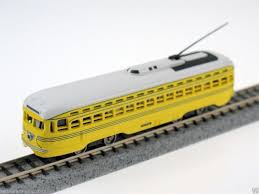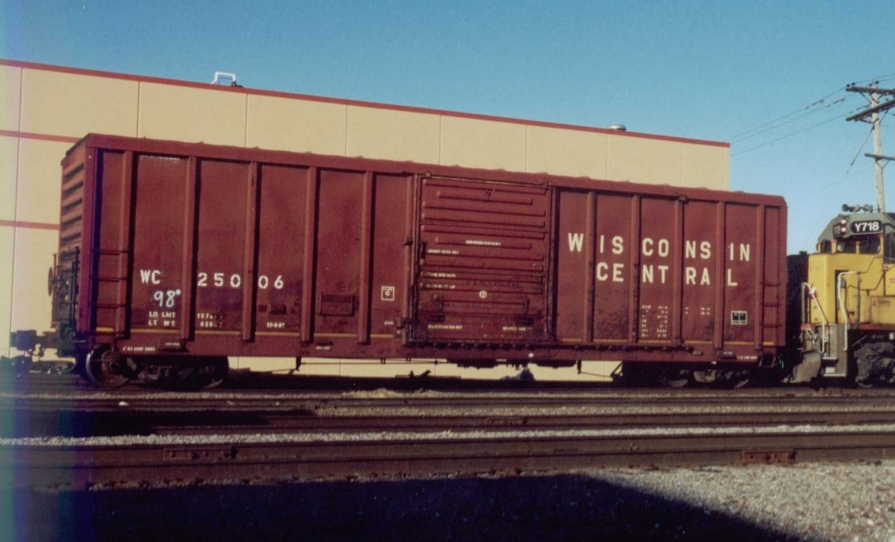Fox Valley - 801202 - Boxcar, 50 Foot, PS 5344 - Illinois Terminal - 8120
| Stock Number | 801202 |
| Original Retail Price | $17.95 |
| Brand | Fox Valley |
| Manufacturer | Fox Valley |
| Body Style | Fox Valley Boxcar 50 Foot PS 5344 |
| Prototype Vehicle | Boxcar, 50 Foot, PS 5344 (Details) |
| Road or Company Name | Illinois Terminal (Details) |
| Reporting Marks | ITC |
| Road or Reporting Number | 8120 |
| Paint Color(s) | Yellow |
| Print Color(s) | Red |
| Coupler Type | MT Magne-Matic Knuckle |
| Coupler Mount | Body-Mount |
| Wheel Type | Injection Molded Plastic |
| Wheel Profile | Small Flange (Low Profile) |
| Item Category | Rolling Stock (Freight) |
| Model Type | Boxcar |
| Model Subtype | 50 Foot |
| Model Variety | PS 5344 |
| Prototype Region | North America |
| Prototype Era | NA Era III: Transition (1939 - 1957) |
| Years Produced | 1977 - 1981 |
| Scale | 1/160 |
Prototype History:
The P-S 5344 Boxcar is last of the successful boxcar projects of the Pullman-Standard company. With production beginning in 1977, Pullman-Standard produced nearly 7,000 P-S 5344 Boxcars. In 1981, Pullman moved to sell all railroad assets in an economy of declining freight car sales. However, these cars ply the rails in legacy of America's great car builder. The last of a breed.
Road Name History:
The Illinois Terminal has one of the most complicated histories for a railroad its size that I’ve ever seen. So without going into too much detail, the IT was established in 1890 when future US President William McKinley bought a streetcar line in the Champaign-Urbana, Illinois area. Within 20 years, he had an electrified interurban passenger and freight system linking Peoria, Bloomington, Danville, Champaign-Urbana, Decatur and Springfield with St. Louis. At its zenith, there was nearly 500 miles of line which included bypasses to keep the freight trains out of the city streets.
In 1904, McKinley went off to Congress and the Illinois Terminal became the Illinois Traction Company until the name reverted in 1937. The interurban passenger operations were significant and outlasted most other Midwestern lines. They were one of only 3 interurban lines in the country to operate sleepers. The principle sleeper route was between Peoria and St. Louis, which had no competition from the local steam roads. At the dawn of the Depression, IT had 124 interurban passenger cars, 22 steam locomotives, and 51 electric freight locomotives.
After the war, passenger service began to wane. By ’56, the intercity passenger service was gone and the last St. Louis area suburban service disappeared two years later. Diesels had begun to arrive in 1950, and by 1955, they had replaced steam and electrics in freight service. The earliest diesels were delivered in black with white trim which was later replaced with variations of bright green and yellow with silver trucks for the remainder of the line’s history.
Now just a hint of IT’s strange corporate machinations: in 1954, the Illinois-Missouri Terminal Railway was incorporated by B&O, C&EI, CB&Q, GM&O, Litchfield & Madison (later C&NW), IC, NKP, Frisco, and Wabash. The I-MT bought the IT 2 years later. The IT was then renamed “Liquidating Terminal” and the I-MT was renamed “Illinois Terminal.” NYC and RI would also buy slices of this IT. This was all for the purpose of providing neutral switching access in the St. Louis - Alton industrial belt for all of the city’s Class 1 carriers. Ironically, a decade before, the IT had been officially named “Liquidating Railway” and “Purchaser Railroad” for the brief period it took to transfer ownership at that time.
By 1980, IT had swapped nearly two thirds of their original mainline trackage for trackage rights on parallel Class 1’s rather than trying to upgrade their own. The freight was handled with 46 diesels with half a dozen SD39’s taking on the heaviest jobs. They also had over 2,600 freight cars. In 1981, the Illinois Terminal was purchased by Norfolk & Western and merged out of existence in 1982.
In 1904, McKinley went off to Congress and the Illinois Terminal became the Illinois Traction Company until the name reverted in 1937. The interurban passenger operations were significant and outlasted most other Midwestern lines. They were one of only 3 interurban lines in the country to operate sleepers. The principle sleeper route was between Peoria and St. Louis, which had no competition from the local steam roads. At the dawn of the Depression, IT had 124 interurban passenger cars, 22 steam locomotives, and 51 electric freight locomotives.
After the war, passenger service began to wane. By ’56, the intercity passenger service was gone and the last St. Louis area suburban service disappeared two years later. Diesels had begun to arrive in 1950, and by 1955, they had replaced steam and electrics in freight service. The earliest diesels were delivered in black with white trim which was later replaced with variations of bright green and yellow with silver trucks for the remainder of the line’s history.
Now just a hint of IT’s strange corporate machinations: in 1954, the Illinois-Missouri Terminal Railway was incorporated by B&O, C&EI, CB&Q, GM&O, Litchfield & Madison (later C&NW), IC, NKP, Frisco, and Wabash. The I-MT bought the IT 2 years later. The IT was then renamed “Liquidating Terminal” and the I-MT was renamed “Illinois Terminal.” NYC and RI would also buy slices of this IT. This was all for the purpose of providing neutral switching access in the St. Louis - Alton industrial belt for all of the city’s Class 1 carriers. Ironically, a decade before, the IT had been officially named “Liquidating Railway” and “Purchaser Railroad” for the brief period it took to transfer ownership at that time.
By 1980, IT had swapped nearly two thirds of their original mainline trackage for trackage rights on parallel Class 1’s rather than trying to upgrade their own. The freight was handled with 46 diesels with half a dozen SD39’s taking on the heaviest jobs. They also had over 2,600 freight cars. In 1981, the Illinois Terminal was purchased by Norfolk & Western and merged out of existence in 1982.
Brand/Importer Information:
Fox Valley Models is a small supplier of
model railroad and related products. FVM
started by finding solutions to different
challenges that model railroaders were
faced with. Our first products resulted
from a need to equip custom built
passenger cars with tinted windows made
of an ideal material; thin, flexible, easy to
cut, simple to install, available in multiple
colors and be affordable. We met those
needs and even included a frosted
version for the car's lavatory windows.
Other challenges inspired additional products including wooden grade crossings, trestles and different lineside structures. As our product line expands, input and requests from friends and customers help shape the product selection further.
Future products, under development, include more parts, structures, details and rolling stock. We strive to offer a good quality product at an affordable price.
Other challenges inspired additional products including wooden grade crossings, trestles and different lineside structures. As our product line expands, input and requests from friends and customers help shape the product selection further.
Future products, under development, include more parts, structures, details and rolling stock. We strive to offer a good quality product at an affordable price.
Item created by: gdm
on 2017-05-06 17:49:34
Last edited by: gdm on 2021-09-27 12:32:59
If you see errors or missing data in this entry, please feel free to log in and edit it. Anyone with a Gmail account can log in instantly.
Last edited by: gdm on 2021-09-27 12:32:59
If you see errors or missing data in this entry, please feel free to log in and edit it. Anyone with a Gmail account can log in instantly.


